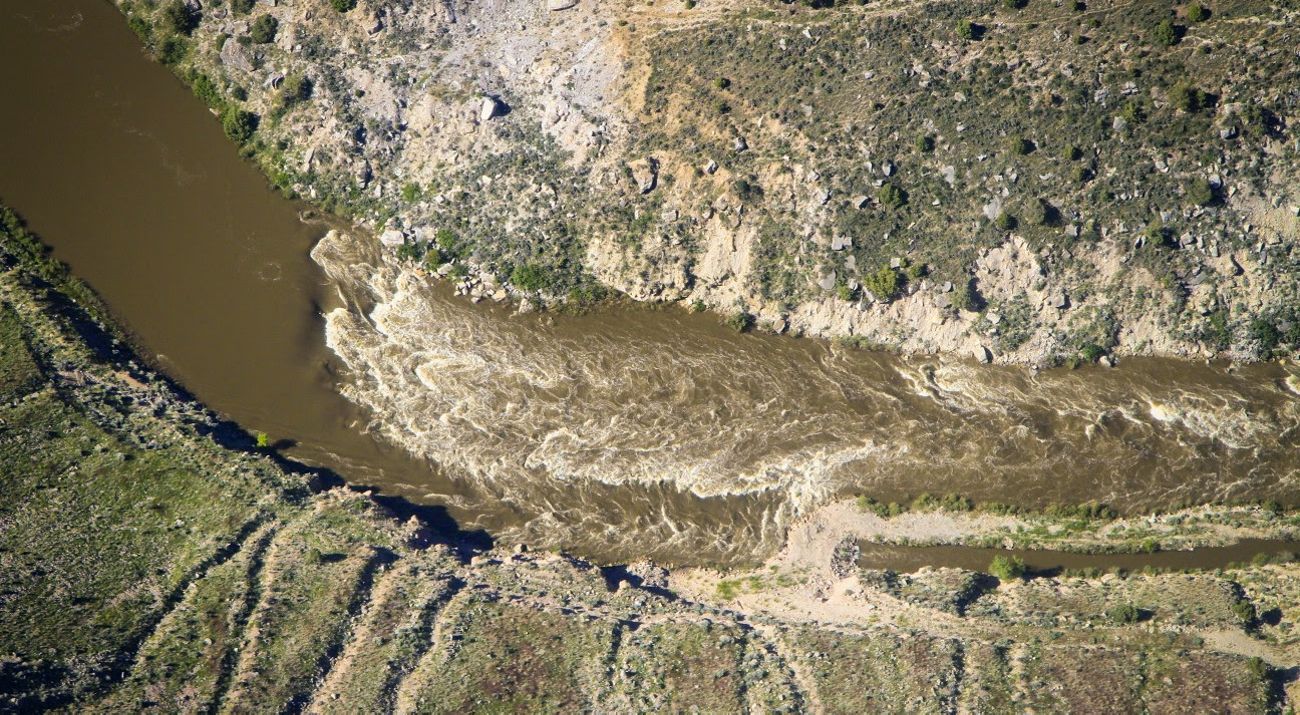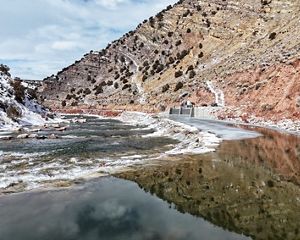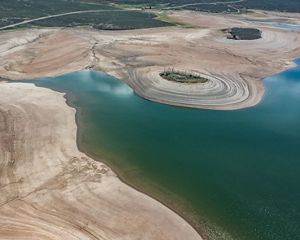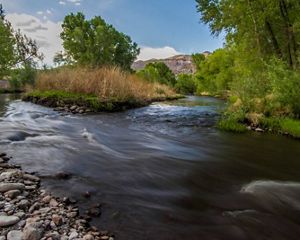
Media Contacts
-
Lindsay Schlageter
The Nature Conservancy
Phone: 612-968-3141
The U.S. Department of the Interior has announced that The Nature Conservancy was selected to receive Bureau of Reclamation WaterSMART grant funding for work to modernize the Maybell Irrigation District's diversion from the Yampa River. The award was part of a $36.1 million investment by the federal government to safeguard local water supplies in the wake of record drought across the West.
“As climate change fuels persistent and severe drought across the West, driving increasingly catastrophic wildfires and unprecedented water shortages for our farmers and ranchers, I’m grateful to see the support for projects like the Maybell Diversion that benefit local irrigators, improve Yampa River habitat and expand recreational opportunities,” said U.S. Senator Michael Bennet. “Local partnerships and common-sense solutions must be at the heart of our approach to drought resiliency in Colorado.”
The Maybell Diversion project was one of 27 projects in 12 states and Puerto Rico to be awarded funding for improving watersheds impacted by wildland fire, restoring aquatic habitats and stream beds, and advancing other environmental restoration projects to mitigate drought-related impacts.
“These Bipartisan Infrastructure Bill funds are modernizing the Maybell Diversion Project to help cope with the historic drought we’re seeing across the West,” said U.S. Senator John Hickenlooper. “These are exactly the kinds of unique and collaborative solutions we need to confront our unprecedented water crisis.”
The Nature Conservancy is partnering with the Maybell Irrigation District, Friends of the Yampa and others to reconstruct the historic Maybell diversion and modernize the headgate in the lower Yampa River. This will help solve low-flow and habitat-impediment problems that exist with the current structure and increase water users’ control of irrigation water while improving aquatic habitat for at least 20 river miles by removing impediments to flow, boat and fish passage.
“It’s an honor that the Maybell Diversion project was granted funding of this size and significance from the Bureau of Reclamation,” said Mike Camblin, president of Maybell Irrigation District. “We are grateful for the support and partnerships that make this project possible."
The project supports the recovery of four threatened and endangered fish and improves recreational boat passage while meeting agricultural irrigation needs.
“We are thrilled that the federal government is putting forth a significant investment into water security projects throughout the West,” said Jennifer Wellman, freshwater project director for The Nature Conservancy in Colorado. “We are at a crucial point in history where we need to implement long-term solutions to address water use and needs in the face of climate change. Our partnership with Maybell Irrigation District is a great example of community-driven, long-term freshwater protection that supports local economic stability.”
The Nature Conservancy is a global conservation organization dedicated to conserving the lands and waters on which all life depends. Guided by science, we create innovative, on-the-ground solutions to our world’s toughest challenges so that nature and people can thrive together. We are tackling climate change, conserving lands, waters and oceans at an unprecedented scale, providing food and water sustainably and helping make cities more resilient. The Nature Conservancy is working to make a lasting difference around the world in 83 countries and territories (39 by direct conservation impact and 44 through partners) through a collaborative approach that engages local communities, governments, the private sector, and other partners. To learn more, visit nature.org or follow @nature_press on X.


